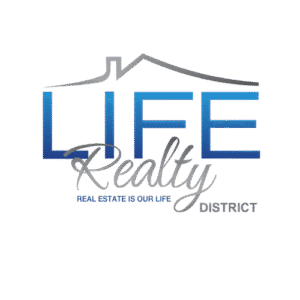Homeownership has long been considered a cornerstone of the American dream, representing stability, success, and financial security. Understanding the benefits of homeownership is essential for anyone considering taking this significant step. This article explores the numerous advantages that come with owning your own home, from financial gains to personal satisfaction.
Financial Benefits of Homeownership
One of the most compelling benefits of homeownership is the financial stability and growth potential it offers. Unlike renting, where monthly payments contribute solely to a landlord’s income, mortgage payments help build your personal equity. This fundamental difference transforms housing from a simple expense into a long-term investment strategy.
Building Equity Over Time
Equity represents the portion of your home that you truly own, calculated as the property’s value minus any outstanding mortgage balance. As you make mortgage payments, your equity gradually increases. Additionally, historical data shows that home values typically appreciate over time. According to the Federal Housing Finance Agency, home prices have increased by approximately 5.4% annually over the past 30 years. This combination of paying down your loan and property appreciation creates a powerful wealth-building effect that is among the most significant benefits of homeownership.
Tax Advantages for Homeowners
The tax code offers several advantages specifically for homeowners, providing another example of the financial benefits of homeownership. Mortgage interest deduction allows homeowners to deduct interest paid on their mortgage loans, potentially reducing taxable income significantly. Property tax deductions also offer relief at tax time. Furthermore, when selling a primary residence, homeowners can exclude up to $250,000 of profit (or $500,000 for married couples) from capital gains taxes, provided they’ve lived in the home for at least two of the five years before selling.
Stable Housing Payments
Fixed-rate mortgages provide predictable housing costs throughout the loan term, protecting homeowners from the rent increases commonly experienced by tenants. This stability makes financial planning easier and more reliable. The benefits of homeownership become particularly evident in high-inflation periods when rents may rise rapidly while fixed mortgage payments remain constant. This predictability allows homeowners to allocate their financial resources with greater confidence and build long-term budgets that they can actually rely on.
Personal and Lifestyle Benefits of Homeownership
Beyond financial considerations, homeownership offers numerous lifestyle advantages that enhance daily living. These personal benefits of homeownership contribute significantly to overall life satisfaction and well-being. The freedom and control that come with owning your home cannot be overstated.
Freedom to Customize Your Space
When you own your home, you have complete freedom to modify and customize your living environment according to your preferences and needs. Want to paint walls bright colors? Install new fixtures? Plant a garden? These are all decisions you can make without seeking permission from a landlord. This autonomy is one of the most appreciated benefits of homeownership, allowing individuals to create spaces that truly reflect their personalities and lifestyles. Homeowners can invest in improvements that not only enhance their daily living experience but also potentially increase their property’s value.
Sense of Community and Stability
Homeownership often leads to longer-term residency in a neighborhood, fostering stronger connections with neighbors and community institutions. This stability allows families to put down roots and become active participants in their local communities. Research from the National Association of Realtors indicates that homeowners stay in their homes for an average of 13 years, compared to just 2 years for renters. This longevity creates more stable neighborhoods and schools, benefiting everyone in the community. The benefits of homeownership extend beyond individual households to strengthen the social fabric of entire communities.
Privacy and Space Considerations
Owning a home typically provides more space and privacy than renting, especially when comparing single-family homes to apartments. Homeowners enjoy control over their property boundaries and outdoor spaces, allowing for private gardens, patios, or play areas for children. This additional space and privacy contribute significantly to quality of life and are important benefits of homeownership for families, individuals working from home, or anyone who values personal space and tranquility in their living environment.
Long-term Benefits of Homeownership
The advantages of owning a home become increasingly apparent when viewed through a long-term lens. These enduring benefits of homeownership contribute to financial security and stability well into the future. Understanding these long-term advantages helps homeowners make informed decisions about their most significant investment.
Retirement Security and Asset Building
For many Americans, home equity represents their largest financial asset and a critical component of retirement planning. As homeowners approach retirement age, they may have several options to access this equity, including selling the home and downsizing, taking out a reverse mortgage, or using a home equity line of credit. According to the Federal Reserve’s Survey of Consumer Finances, homeowners aged 65 and older have a median net worth of $319,200, compared to just $6,670 for non-homeowners in the same age group. This dramatic difference highlights the long-term benefits of homeownership as a retirement security strategy.
Legacy and Generational Wealth
Homes can be passed down to heirs, creating a valuable legacy and helping to build generational wealth. This transfer of assets can provide significant financial advantages to children and grandchildren, potentially helping them achieve their own homeownership goals. The benefits of homeownership thus extend beyond one’s lifetime, creating opportunities for future family members. This aspect of homeownership is particularly meaningful for those who wish to leave a lasting financial legacy for their loved ones.
Protection Against Inflation
Real estate has historically served as an effective hedge against inflation, making the benefits of homeownership particularly valuable during periods of rising prices. As inflation increases, both home values and rental rates typically rise. However, homeowners with fixed-rate mortgages are protected from rising housing costs, while renters face increasing monthly payments. Additionally, the tangible nature of real estate means it retains intrinsic value even when currency values fluctuate. This protection against inflation is an important consideration for long-term financial planning and demonstrates another advantage of the benefits of homeownership.
Social and Psychological Benefits of Homeownership
The impact of owning a home extends beyond financial metrics to influence psychological well-being and social outcomes. These intangible benefits of homeownership, while harder to quantify, are no less important to homeowners’ overall quality of life. Research has consistently shown that homeownership correlates with numerous positive social and psychological outcomes.
Pride of Ownership
The sense of accomplishment and pride that comes with owning a home is one of its most significant psychological benefits. This emotional connection to one’s living space contributes to overall life satisfaction and self-esteem. The benefits of homeownership include the ability to take pride in maintaining and improving your property, creating a home that reflects your values and aesthetic preferences. This sense of ownership often translates into greater care for the property and increased neighborhood involvement, creating positive ripple effects throughout the community.
Improved Mental Health and Well-being
Studies have linked homeownership with better mental health outcomes, including lower stress levels and higher reported life satisfaction. The stability and control associated with owning a home contribute to these positive effects. Research published in the Journal of Urban Economics found that homeowners report higher levels of well-being compared to renters, even after controlling for factors like income and education. These psychological benefits of homeownership are particularly valuable during times of economic uncertainty or personal transition, providing an anchor of stability in an otherwise changing world.
Educational Benefits for Children
Children of homeowners tend to have better educational outcomes than those of renters, according to numerous studies. The stability of homeownership allows children to remain in the same schools, form lasting friendships, and benefit from consistent community connections. A study by the National Bureau of Economic Research found that children of homeowners are 25% more likely to graduate from high school and 116% more likely to graduate from college than children of renters. These educational benefits of homeownership represent long-term advantages that can impact future generations and create upward mobility for families.
Overcoming Challenges to Reap the Benefits of Homeownership
While the benefits of homeownership are substantial, potential challenges must be acknowledged and addressed. Understanding these obstacles and how to overcome them is essential for anyone considering homeownership. With proper planning and realistic expectations, most challenges can be successfully navigated to enjoy the numerous advantages of owning a home.
Initial Financial Hurdles
The upfront costs of homeownership, including down payments, closing costs, and initial repairs, can present significant barriers for many potential buyers. However, numerous programs exist to help overcome these hurdles. First-time homebuyer programs, down payment assistance initiatives, and various loan products can help make homeownership accessible even to those with limited savings. The benefits of homeownership often justify the effort required to overcome these initial financial challenges, especially when considering the long-term financial and personal advantages.
READE MORE: Your Complete Guide to Schools in Summerlin
Maintenance Responsibilities
Unlike renting, where landlords handle repairs and maintenance, homeowners are responsible for all aspects of property upkeep. These responsibilities require both time and financial resources. However, many homeowners find satisfaction in maintaining and improving their properties, viewing these tasks as investments rather than burdens. Setting aside a portion of your monthly budget for home maintenance (typically 1-3% of the home’s value annually) can help manage these costs effectively. The benefits of homeownership include the ability to make improvements that enhance your living experience and potentially increase your property’s value.
Market Fluctuations
Real estate markets naturally experience cycles of growth and decline, which can create uncertainty for homeowners. However, history shows that over the long term, real estate generally appreciates in value. The key to weathering market fluctuations is maintaining a long-term perspective and avoiding panic during downturns. The benefits of homeownership are most fully realized by those who view their homes as long-term investments rather than short-term profit vehicles. By focusing on the multiple advantages of homeownership beyond just market value, owners can remain confident in their investment even during periods of market volatility.
Conclusion
The benefits of homeownership extend far beyond simple shelter, encompassing financial advantages, personal satisfaction, and long-term security. From building equity and enjoying tax benefits to experiencing the pride of ownership and contributing to stable communities, homeownership offers numerous advantages that make it a worthwhile goal for many individuals and families. While challenges exist, they can be overcome with proper planning and realistic expectations.
The benefits of homeownership represent a powerful combination of financial and personal advantages that contribute significantly to overall quality of life. For those willing to take on the responsibilities of owning a home, the rewards can be substantial and long-lasting. Whether you’re considering your first home purchase or evaluating the long-term value of your current property, understanding these benefits can help you make informed decisions about one of life’s most significant investments.





